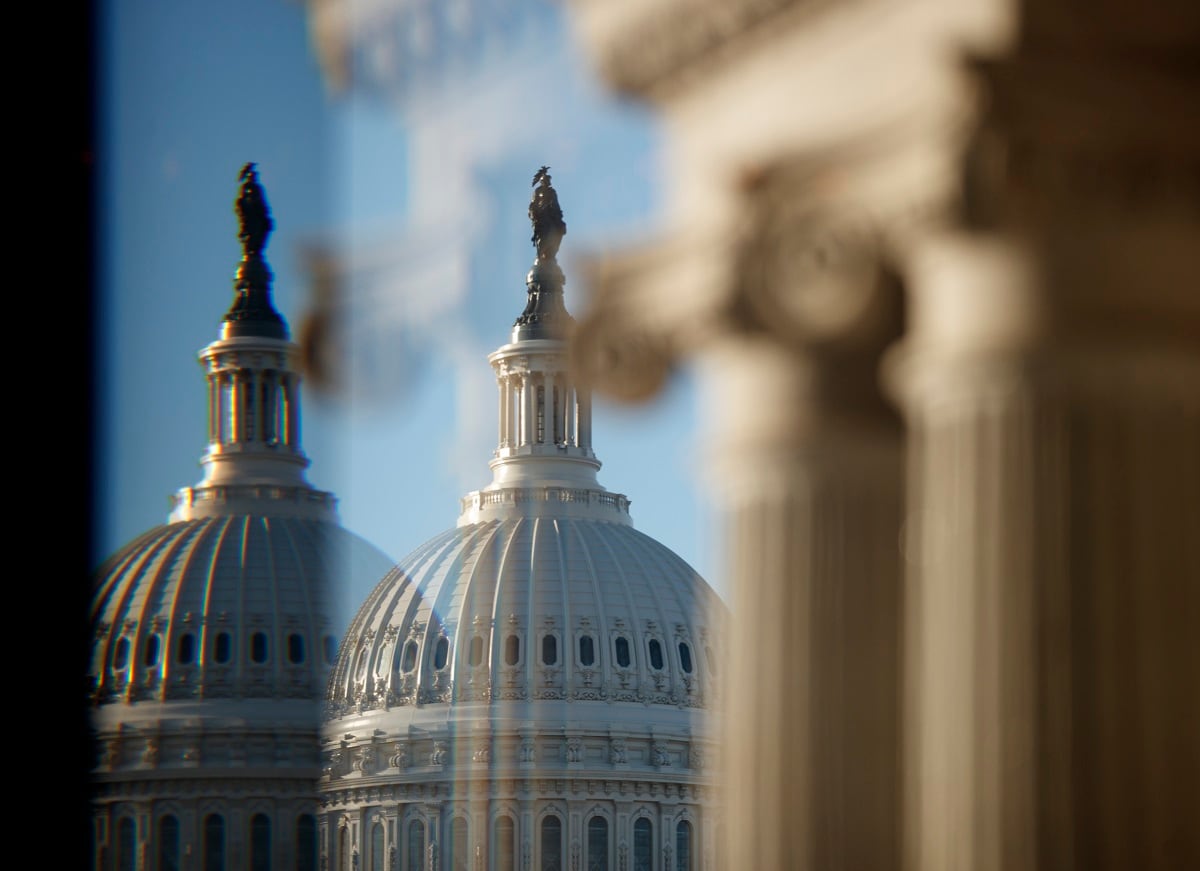WASHINGTON ― House Armed Services Committee Chairman Adam Smith, D-Wash., doubled down Thursday on his warning that White House dawdling on its budget submission to Congress will create a crisis.
Speaking at an American Enterprise Institute event, Smith reiterated his admonition from last week: Without a submission by May 10, Congress won’t have enough time to complete the legislative process before the end of the new fiscal year, Oct. 1. That virtually guarantees the need for a stopgap continuing resolution to avoid a government shutdown.
“It has not been made clear to me that that folks [in the White House] understand this: If we don’t get the budget by a certain timeframe, we can’t mark up the appropriations bills, and the defense bill,” Smith said. “If we slip past the middle of May, my staff tells me, we will not be able to do any of those things before August.”
The veteran lawmaker said he would be surprised if Congress cancelled its August recess, which means lawmakers would have only three weeks in September to do a job that typically takes all summer.
“From a White House perspective, ‘well we don’t need to pass the budget until Oct. 1, so what’s the rush?’” he said. “There are a couple of things that happen between when you submit it to us and we send it back to you.”
Congress rarely, if ever, leaves a president’s budget untouched, and Smith suggested the White House could submit one for lawmakers to fix.
“I would try to be respectful, and not hurting anyone’s feelings, but the White House budget doesn’t have to be perfect,” Smith said, adding: “We will make changes. So if there’s something in there that you don’t like, it isn’t exactly the way you want it, there is time to fix it.”
RELATED

This was the second time Smith has publicly chastised the White House on the issue and accused it of dysfunction. Last week at the Ronald Reagan Institute, Smith said that White House budget officials have been left hanging by White House Chief of Staff Ron Klain and the Cabinet.
New administrations often roll out their budget requests late in their first year, but this year’s planning has been particularly difficult for Biden administration officials, they have said, because the Trump administration blocked the incoming administration from accessing budget documents until just before the inauguration.
Continuing resolutions have become the norm, but they’re unpopular with the Pentagon and defense industry because they ban new-start defense programs, hinder planning and increase costs.
The surprising spat comes as the White House delayed releasing President Joe Biden’s detailed request until later in the spring. Biden’s fiscal 2022 top-line request earlier this month had $753 billion for national defense, a 1.6 percent increase that’s met with some partisan push and pull.
“I think the number they picked is absolutely right, very well thought out. They’ve got a great plan a great strategy,” Smith said. “And if we in Congress waste an enormous amount of time fighting over whether or not we add a few more dollars or cut a few more dollars, we’re really missing the boat.”
Joe Gould was the senior Pentagon reporter for Defense News, covering the intersection of national security policy, politics and the defense industry. He had previously served as Congress reporter.







